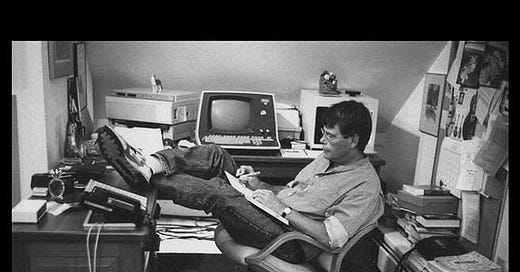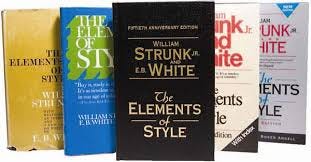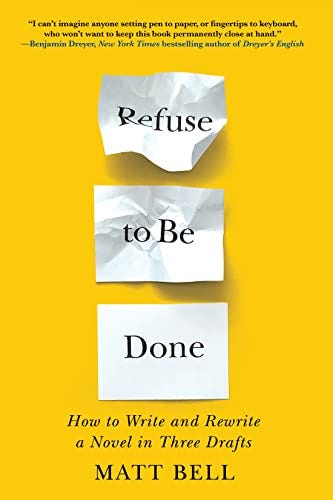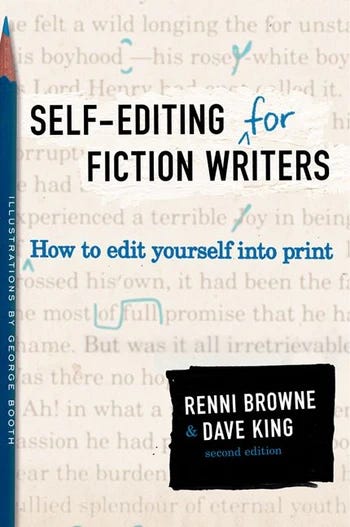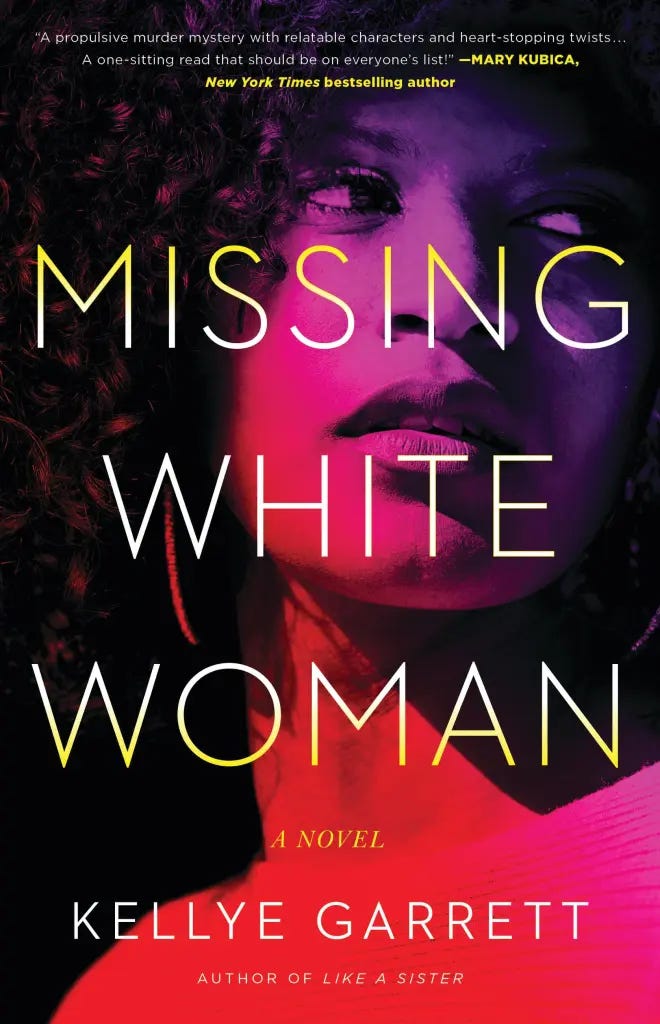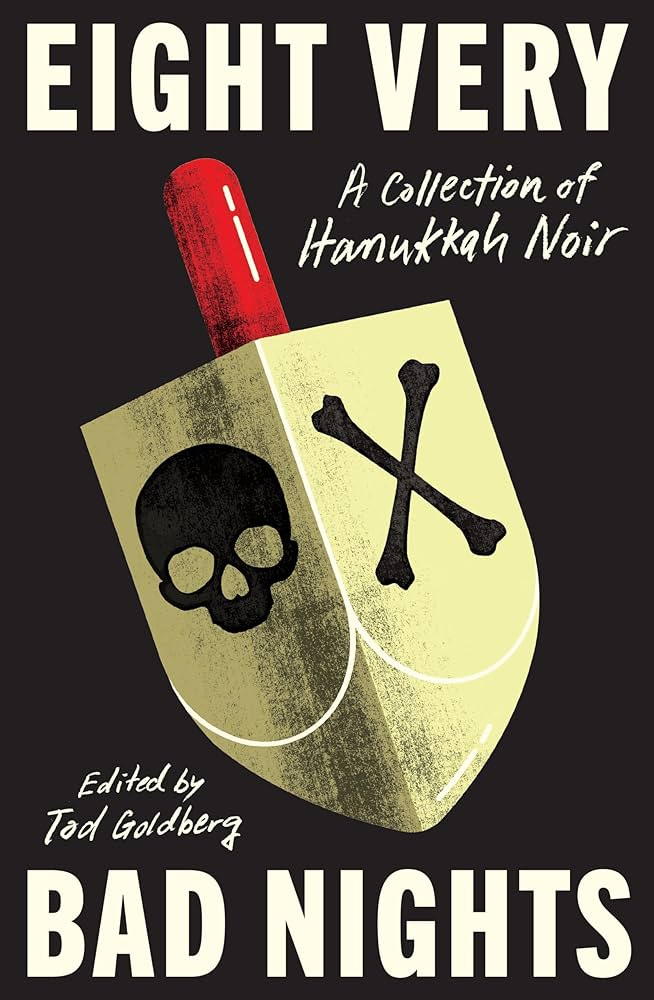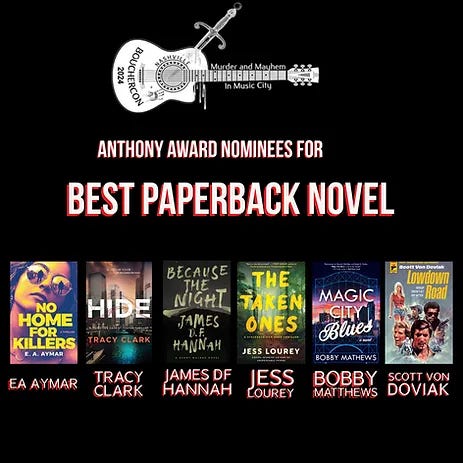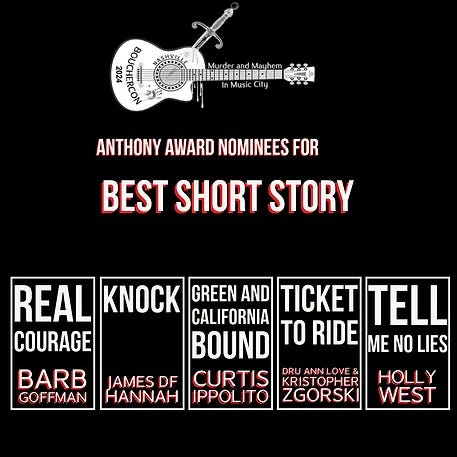#17: That time I remembered I have a newsletter
The four books you need for writing, what I've been reading, and some shameless shilling
Writers gets asked the same questions: “Where do you get your ideas? Who’s your inspiration? How do I get published? Do you have another credit card for your bar tab, because this one’s been declined?”
Among the most common question is “What you recommend reading for someone starting out?” If you explore Amazon for “fiction writing reference,” you’ll notice there’s seemingly no end of books looking to explain to you how to write … other books. I should know, because I own many of them.
However, to save folks time and money, I’d like to narrow these options to the four books I believe both aspiring and experienced authors would benefit from owning. This is a genre-agnostic list; I’ve focused on a potential Christmas list for those who want to write anything from crime novels to the next wave of Chuck Tingle novels.
THE ELEMENTS OF STYLE, William Strunk and E.B. White
The antecedent to nearly all modern books on writing, originally written by William Strunk in 1918 and updated by E.B. White in 1957. In its most classic form it’s nearly booklet-sized, a mere 105 pages, abiding by its own most famous advice (“avoid needless words”). Though many argue its relevancy more than a hundred years after its first publication, the book’s emphasis on crafting clear, lucid prose stands as true today as it did then. Plus, it can be read in less time than it takes to watch a bad movie on Netflix and referenced throughout a writing life.
ON WRITING: A MEMOIR OF THE CRAFT, Stephen King
Surely the most recommended modern volume of writing advice, and for a good reason: It’s refreshingly lacking in bullshit, written in King’s wonderfully casual style, and every page contains a piece of wit or wisdom to carry a writer forward. It demystifies the writing process, emphasizing both the labor and the craft of good storytelling. Started in the late 90s and completed after the accident that nearly killed him, the book is a summation of King’s life and his devotion to the trade up to that date. This is one you’ll routinely drop back into over time—for advice, for inspiration, for the reminder of the beauty of excellent writing.
REFUSE TO BE DONE, Matt Bell
A relatively new addition, but invaluable for what might be the hardest part of the process: the second draft and beyond. Bell’s own writing about this is crisp and concise, never precious and pretentious, and remains focused on the practical aspects of sharpening your work. I used its advice while rewriting a recent book, and I know this is one I’ll return to again between first and second drafts of long projects.
SELF-EDITING FOR FICTION WRITERS, Renni Brown and Dave King
Perhaps the best book-length treatise on the self-editing process, this one takes you through revising dialogue, description, exposition and more. It is about taking a laser focus to each aspects of your draft and making it the best it can be before submission to editors, agents, and publishers. It’s another good one to have fresh in your mind before you start on a second or third draft—or in my case, a fourth or fifth draft.
Did I forget your favorite craft book? Probably. I wanted a list to inspire without burdening either your creativity or your credit card. But if you’re looking to fill out your writing resource library, here’s a few others I can still recommend:
BIRD BY BIRD, Anne Lamott
If I hadn’t made it an arbitrary list of four, this one would be on there. A classic of the genre. Not always as practical as I like, but still full of good advice and interesting anecdotes.
TELLING LIES FOR FUN AND PROFIT, Lawrence Block
A compendium of columns Block wrote for Writer’s Digest in the early 80s. Compulsively readable the way almost all Block is, if occasionally dated.
SAVE THE CAT WRITES A NOVEL, Jessica Brody
The “Save the Cat” outlining method gets blamed—falsely—for creating formulaic storytelling, when in reality it’s just another iteration of storytelling modalities used for centuries. Good advice throughout, though as The Band recommended, take what you need and leave the rest.
WRITING AND SELLING YOUR MYSTERY NOVEL, Hallie Ephron
HOW TO WRITE A MYSTERY, edited by Lee Child with Laurie R. King
I’m a crime novelist, so I should recommend two specific to the genre, and these are both exceptional. Ephon takes a nuts to bolts approach to writing a mystery novel, from idea to final draft, with advice applicable for everything from the coziest of cozies to romantic thrillers and hard-boiled PI novels. Child and King collect essays from 70 successful authors, tackling everything from rules of the genre to how to handle criticism.
WHAT I’M READING
Few writers seamlessly thread social commentary and the media age together with the modern thriller the way Kellye Garrett does, and MISSING WHITE WOMAN is her at the absolute top of her game, building off the success of her previous novel, LIKE A SISTER.
A romantic getaway goes wrong when, during a visit to New York City, Bree wakes up to discover her boyfriend has vanished and there’s the body of a missing woman in the foyer of their rented house. Bree finds herself caught between the police and the onslaught of social media and has to discover the truth of what happened. Insightful and compulsively readable from the first page, full of twists that will keep you up all night.
SHAMELESS SHILLING
I have a story in this one, edited by the great Tod Goldberg and stacked with fresh work from writers such as Gabino Iglesias, Nikki Dolson, Ivy Pochoda, Lee Goldberg, and Tod himself. My story, “Twenty Centuries,” brings back Sheriff Charlotte “Crash” Landing from my Henry Malone novels, investigating the death of a man found frozen to death, half naked and horribly mutilated.
Read it to the family during the holidays.
Anyway, this is a colossal assortment of talent, and I’m thrilled to be a part of it. Out October 29, and available for pre-order. The story will also be published in the November/December edition of Ellery Queen’s Mystery Magazine.
SOMETHING SOMETHING ANTHONY NOMINATIONS …
I’m honored to have two works up for Anthony Awards this year: Best Paperback Original for BECAUSE THE NIGHT, and Best Short Story for “Knock,” from PLAYING GAMES, edited by Lawrence Block. The nominations are, of course, wonderful, but to have the work invoked alongside these great writers—who I am fortunate enough to also call friends—is the best, and I cannot wait to celebrate with them when the awards are given out at Bouchercon in Nashville, August 28-September 1.
That’s all we’ve got for now. Thanks for coming. See you next time, and hey, let’s be careful out there.

